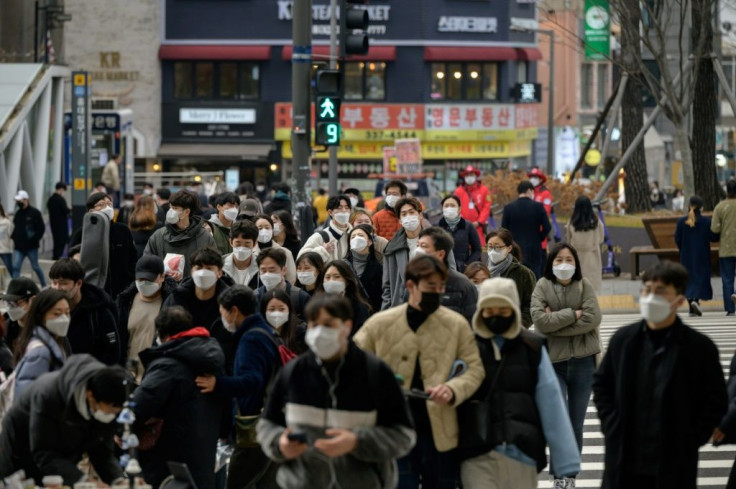South Korean Homeownership An 'Impossible Dream:' Economics Fuels First-Ever Population Loss
KEY POINTS
- South Korea has experienced its first year of population shrinkage
- Economic insecurity, especially among women and youth populations, has made childrearing a pipe dream
- Other Asian economies face the same problem, but South Korea is poised to have the fastest transition from growth to decline
South Korea’s most recent census data indicates that for the first time it lost more citizens than it gained. The trend is the product of stagnant economic growth, as well as cultural factors that dissuade South Koreans from having children.
“Amid the rapidly declining birth rate, the government needs to undertake fundamental changes to its relevant policies,” the interior ministry said.
A plethora of bleak economic conditions like wage stagnation and inequality have hit young people and women particularly hard. In a country where children most often come only after marriage and women take on a disproportionate share of domestic tasks, many working women see childbirth as simply not possible.
The BBC cited a South Korean woman, Hyun-yu Kim, who said she wanted to have children. However, housing prices and a new job that would frown on her taking maternity leave.
“People tell me that it's safer to build my career first,” she said. "In order to have children, you need to have your own home. But this has become an impossible dream in Korea."
In Seoul, home prices have surged more than 50% since 2017 despite efforts to curb the rise.
“We are wary of a build-up of financial imbalances, given the excessive rise in home prices compared to income growth and economic conditions,” Bank of Korea Governor Lee Ju-yeol said at a press conference in December.

South Korea, which has the fourth-largest economy in Asia, has had fewer than 1,000 COVID-19 deaths, but the economic effects of lockdowns have had disproportionate impacts on young people. It’s also hard to quantify the cultural and social effects, which could exacerbate already-present trends of hopelessness among South Korea’s youth.
“We do not see the future of Korea as so rosy, I do not want to bring up children in this unpromising society,” Bang Seong-deok, a 26-year-old civil engineering doctoral student told the New York Times in 2017. “That mentality is persistent among many of my peers.”
The government is well aware of the issue, but like other Asian countries facing the same problem has struggled to actually address it. A stipend of around $2,000 for newborns and a sixth of that annually falls far short of what families would need and does nothing to address social and cultural obstacles.
"It's expensive to raise a child,” said Kim. “The government providing an extra couple hundred thousand won won't solve our problems."
© Copyright IBTimes 2024. All rights reserved.



















